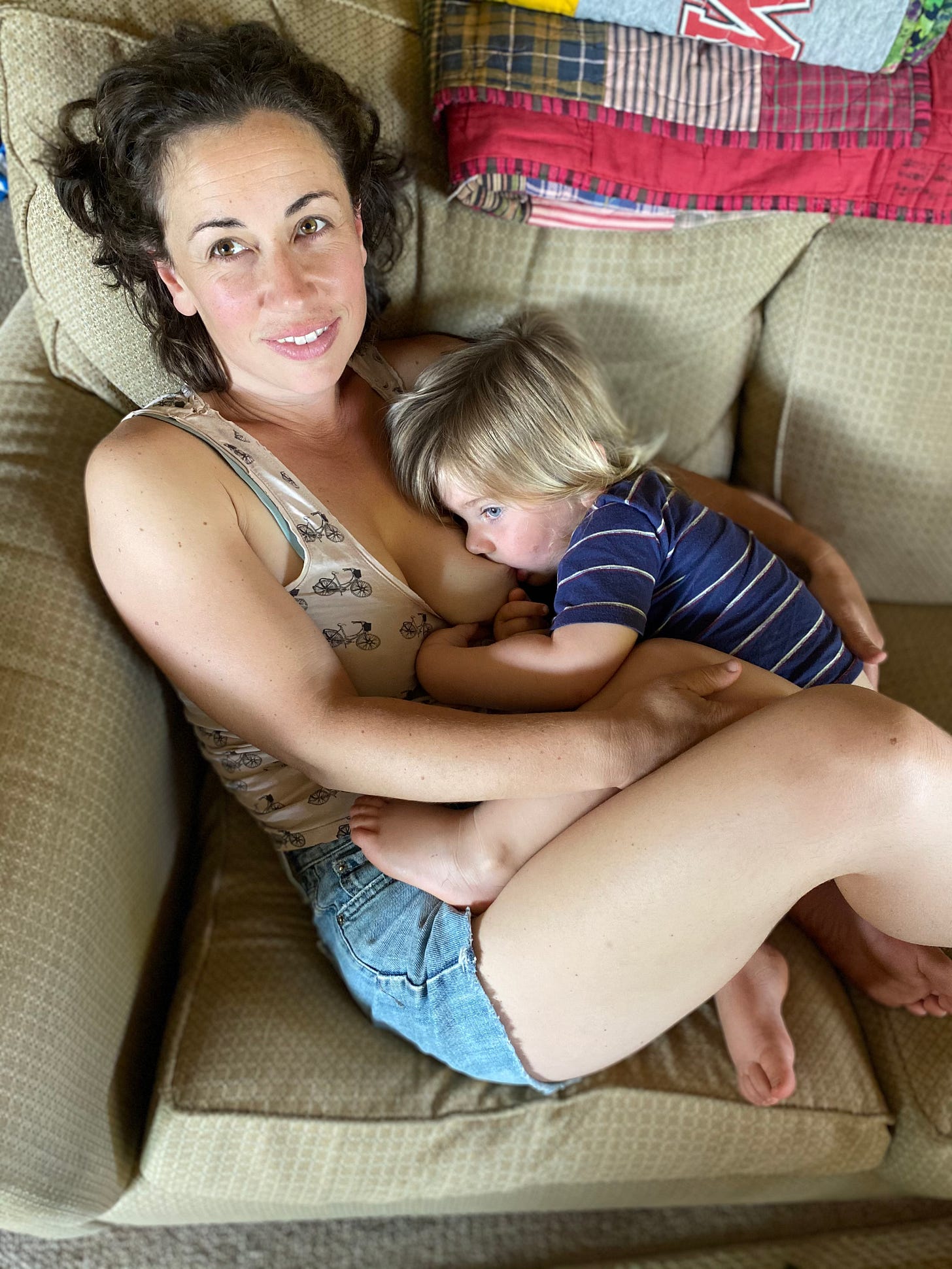I wrote Super Boob in a moment of desperation, with a sense of exhaustion so heavy it felt all consuming. “I must be crazy. I will never show this to anyone,” I thought. Three years later I read it again, laughed out loud, and reasoned, “This is a real raw honest portrayal of early motherhood that is so often hidden from the world. I’m going to be brave, share it, and see what happens.”
The progression was an immediate feeling of embarrassment, like that dream we all have where we’re naked in public and there’s nowhere to hide. Then all these women started reaching out to me, telling me about their postpartum journeys and how much this piece resonated with them, made them feel seen, validated. This gave me a feeling of pride but also sadness that so many new mothers go through this huge rite of passage in a cloak of deep dark isolation, exhaustion, and invisibility.
The other thing that stood out was that these women reached out to me in secret. In the same way that I wrote Su…
Keep reading with a 7-day free trial
Subscribe to Sexy as a Mother to keep reading this post and get 7 days of free access to the full post archives.




